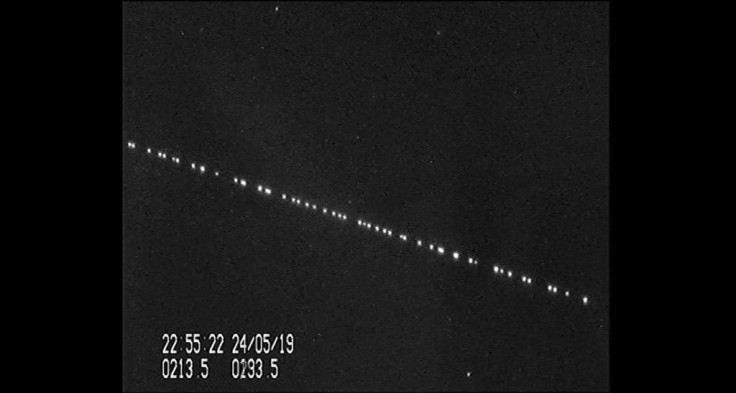Space Startup CEO Slams Elon Musk: 'You Need Regulation'; Wants To Beat SpaceX

OneWeb's CEO, Adrian Steckel, wants high-speed internet for all that's why his company plans to launch thousands of satellites into low Earth orbit (LEO), but he also wants another thing -- regulation.
As satellite launches keep piling up, and companies like Space X and Blue Origin plan to add thousands more to the already huge number of objects floating around Earth's orbit. Recent reports reveal Elon Musk looking to launch 30,000 more Starlink satellites into orbit. Steckel, however, seeks some playing rules.
The Mexican business executive wants countries like the U.S. and the U.K., and other "launch countries" to regulate the satellite traffic in space to prevent space debris.
"As a startup, you think that we would not want to be regulated. That's sort of anathema — you want to push the limits and do everything you can, but it's a shared resource," Steckel told Yahoo Finance's The Ticker.
Space debris caused by zombie satellites and collisions is a concern for companies since it may prevent or obstruct future launches.
"Everybody needs sort of fair rules, and understanding that everybody plays by the rules to preserve that… Because it's not that I spoil it for myself, I spoil it for everybody," he added.
“I think that in the greater context, if you look at companies in general, you need regulation, because there really isn't a cop up there."
Two satellites a day
With that regulation in mind, OneWeb's target is to launch two satellites a day rivaling SpaceX's Starlink that projects 12,000 satellites by 2027, and in February, they were able to get six satellites in space. To Steckel, it's all about who can scale faster.
Steckel notes that $250 million used to be the cost of one geo satellite, but they were able to reduce it to $1 million.
"It's a scale game," Steckle added, "for us, for SpaceX and for Amazon. When you have great scale, the cost of the band and device goes down."
OneWeb's Internet
The company also wants to achieve broadband with a low latency connection. Their refrigerator-sized satellites travel at 27,000 km per hour and will operate at a 1200 km altitude, which is closer to the Earth than most geo satellites.
In March, the company received $1.9 billion in funding from four investors: Softbank, Qualcomm, Grupo Salinas, and the Government of the Republic of Rwanda, according to Crunchbase.

© Copyright IBTimes 2025. All rights reserved.





















